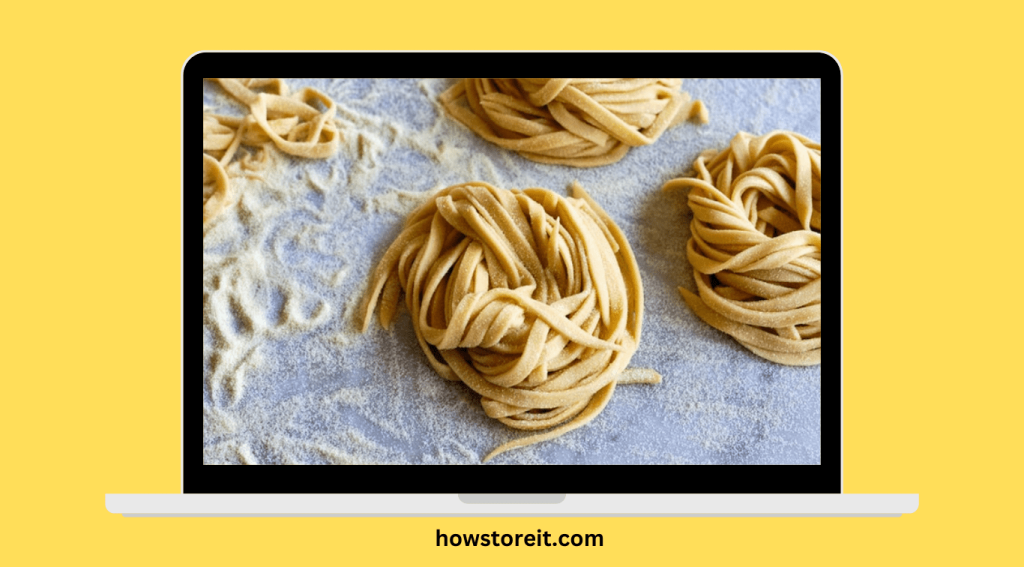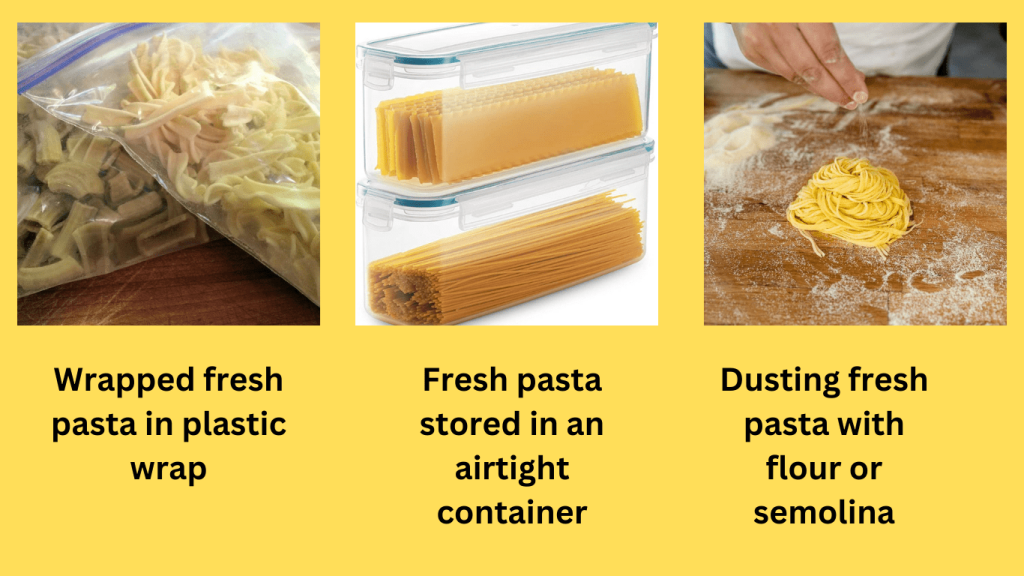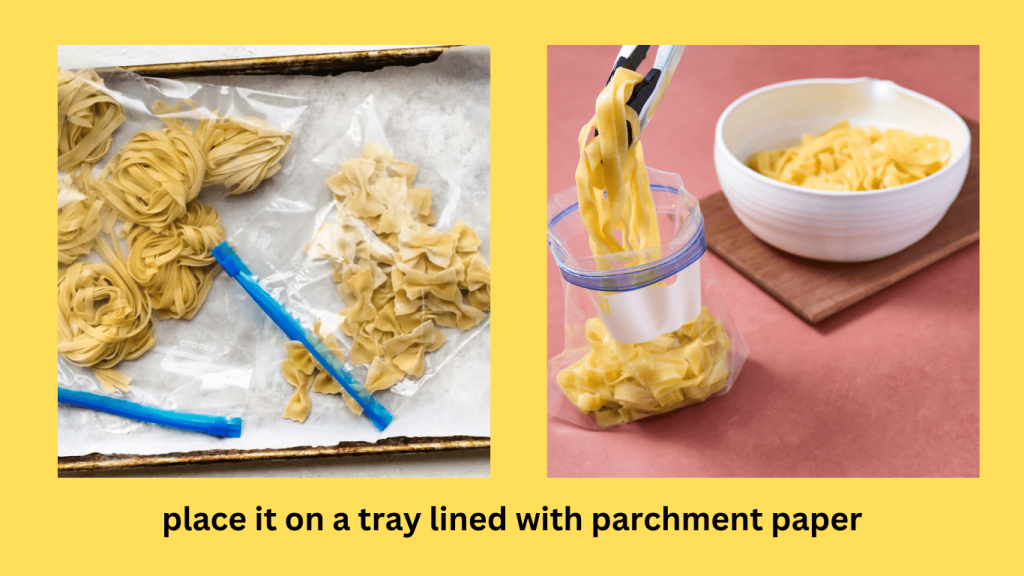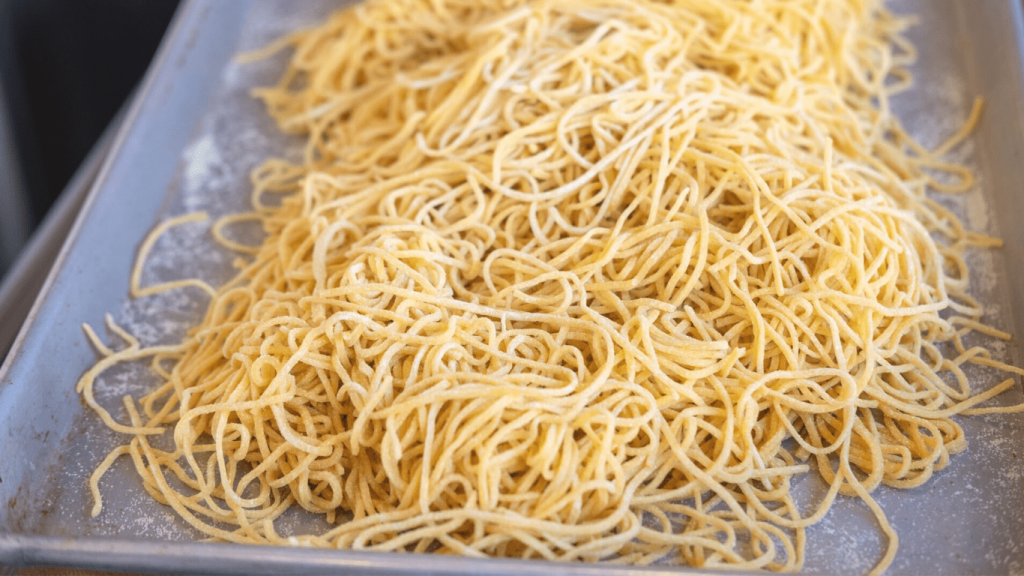
There is nothing quite as comforting and satisfying as a plate of fresh pasta. From spaghetti to fettuccine, lasagna to ravioli, there is a type of pasta for every taste and occasion. However, if you want to enjoy your fresh pasta for more than just a few days, it is important to know how to store it properly.
Proper storage is key to maintaining the quality and flavor of fresh pasta. In this article, we will cover the factors that affect the shelf life of fresh pasta, the methods for storing fresh pasta, how to prevent fresh pasta from sticking, how to rest fresh pasta before cooking, how to freeze uncooked fresh pasta, how to make fresh pasta in advance, and how to tell if fresh pasta has gone bad.
- Factors That Affect the Shelf Life of Fresh Pasta
- Methods: How to Store Fresh Pasta
- How to Prevent Fresh Pasta from Sticking
- How to Rest Fresh Pasta Before Cooking
- How to Freeze Uncooked Fresh Pasta
- How to Make Fresh Pasta in Advance
- How to Tell If Fresh Pasta Has Gone Bad
- Conclusion
- FAQ About How to Store Fresh Pasta
Factors That Affect the Shelf Life of Fresh Pasta
The shelf life of fresh pasta depends on several factors, such as the ingredients used, temperature, and humidity. Fresh pasta that contains eggs or other perishable ingredients will have a shorter shelf life than pasta made with just flour and water. Similarly, fresh pasta stored in a warm and humid environment will spoil faster than pasta stored in a cool and dry place.
To extend the shelf life of fresh pasta, it is important to choose the right ingredients and store the pasta in optimal conditions. Use high-quality ingredients and make sure they are fresh. Avoid using eggs that are close to their expiration date or flour that has been sitting in your pantry for months.
Store your fresh pasta in a cool and dry place, away from direct sunlight, heat, and moisture. The ideal temperature range for storing fresh pasta is between 35°F and 40°F (2°C and 4°C). You can store fresh pasta in the refrigerator or freezer, depending on how long you plan to keep it.
Methods: How to Store Fresh Pasta
There are different methods for storing fresh pasta, each with its pros and cons. The most common methods are refrigeration and freezing.
Refrigeration
Refrigeration is the best option if you plan to use your fresh pasta within a few days. To store fresh pasta in the refrigerator, wrap it tightly in plastic wrap or place it in an airtight container. Make sure the pasta is completely covered to prevent it from drying out. You can also dust the pasta with flour or semolina to prevent it from sticking together.

Fresh pasta stored in the refrigerator can last for up to 4 days. However, keep in mind that the texture and flavor of the pasta may change over time.
Freezing
Freezing is a great option if you want to store your fresh pasta for a longer period. To freeze fresh pasta, place it on a tray lined with parchment paper and freeze it for 2-3 hours. Once the pasta is frozen, transfer it to a freezer-safe bag or container. Make sure to remove as much air as possible before sealing the bag or container.
Frozen fresh pasta can last for up to 2 months. To use frozen fresh pasta, thaw it overnight in the refrigerator or at room temperature for a few hours. Do not thaw frozen fresh pasta in the microwave, as this can cause the pasta to become mushy.

How to Prevent Fresh Pasta from Sticking
Fresh pasta can stick together and become clumpy if not stored properly. To prevent fresh pasta from sticking, dust it with flour or semolina before storing it. This will help absorb any moisture and prevent the pasta from sticking together.
You can also hang fresh pasta to dry before storing it. Place the pasta on a drying rack or hang it on a pasta drying tree. Once the pasta is dry, store it in an airtight container or freezer-safe bag.
How to Rest Fresh Pasta Before Cooking
Resting fresh pasta before cooking is important to ensure that the pasta cooks evenly and has the right texture. Resting allows the gluten in the pasta dough to relax, making the pasta more pliable and easier to work with.
To rest fresh pasta, cover it with a clean towel or plastic wrap and let it sit at room temperature for at least 30 minutes before cooking. This will allow the pasta to absorb some of the moisture and become more supple.
How to Freeze Uncooked Fresh Pasta

Freezing uncooked fresh pasta is a great way to save time and have fresh pasta on hand whenever you need it. To freeze uncooked fresh pasta, shape the pasta into your desired shape (such as spaghetti, fettuccine, or ravioli), then place it on a tray lined with parchment paper. Freeze the pasta for 2-3 hours, then transfer it to a freezer-safe bag or container.
Frozen uncooked fresh pasta can last for up to 2 months. To cook frozen uncooked fresh pasta, simply add it directly to boiling water and cook for 1-2 minutes longer than fresh pasta.
How to Make Fresh Pasta in Advance
Making fresh pasta in advance is a great way to save time and have fresh pasta on hand whenever you need it. To make fresh pasta in advance, prepare the pasta dough as usual, then cover it with plastic wrap and refrigerate it for up to 24 hours. When you are ready to use the pasta, remove it from the refrigerator and let it come to room temperature before rolling and cutting it.
You can also freeze fresh pasta that has been made in advance. Shape the pasta into your desired shape, then freeze it on a tray lined with parchment paper. Once the pasta is frozen, transfer it to a freezer-safe bag or container. Frozen fresh pasta that has been made in advance can last for up to 2 months.
How to Tell If Fresh Pasta Has Gone Bad
Fresh pasta that has gone bad can be dangerous to eat and should be discarded. Signs of spoiled fresh pasta include a sour smell, mold, and discoloration. Fresh pasta that has been stored improperly may also have a slimy texture or a sour taste.
If the pasta looks or smells off, it is best to err on the side of caution and throw it out.
Conclusion
Storing fresh pasta properly is key to maintaining its quality and flavor. Whether you are storing fresh pasta in the refrigerator or freezer, make sure to wrap it tightly in plastic wrap or place it in an airtight container. Dust the pasta with flour or semolina to prevent it from sticking together and allow it to rest before cooking for optimal results.
Frozen fresh pasta can last for up to 2 months, while fresh pasta stored in the refrigerator can last for up to 4 days. When making fresh pasta in advance, refrigerate the dough for up to 24 hours or freeze the shaped pasta for later use.
By following these tips and recommendations, you can enjoy fresh pasta for longer and ensure that it always tastes its best.
FAQ About How to Store Fresh Pasta
If the pasta is fresh, you can store it in the refrigerator for up to 4 days.
If the pasta is dry, you can store it in a cool, dry place for up to 2 years.
Let the pasta dry for at least an hour after making it, so it’s not too moist.
Portion the pasta into serving sizes and wrap each portion tightly in plastic wrap.
Place the wrapped portions into a freezer bag, removing as much air as possible before sealing.
Label the bag with the date and type of pasta.
Freeze the pasta for up to 2-3 months.
Remove the desired amount of pasta from the freezer and let it thaw in the refrigerator overnight.
If you’re short on time, you can thaw it in a bowl of cold water for 30 minutes to an hour.
Cook the pasta according to the instructions on the package.
Place the pasta in a pot of boiling water for a few seconds until it’s warmed through.
Alternatively, you can reheat it in the microwave, covered, for 1-2 minutes.


